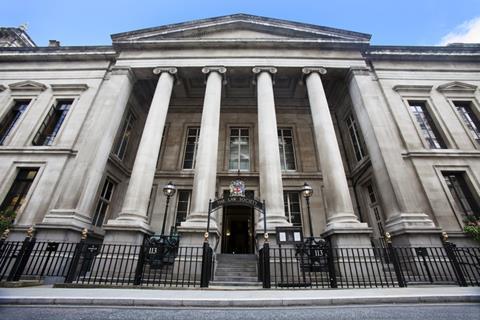Covid-19 operating hours will not deliver value for money to the taxpayer or achieve the objective of clearing the significant court backlog, the Law Society has told the government.
Responding to HM Courts & Tribunals Service’s consultation on extending the controversial model to more Crown courts, Chancery Lane said it remained to be convinced that Covid operating hours delivered significant additional capacity.
The Society said: ‘Although more cases have been disposed of during COH, it appears to have been largely due to the fact that shorter, less complex cases are allocated for these times, which means that a greater number of cases can be allocated (including backup and floating cases), and therefore a greater number of those cases crack. It is our view that the vast majority of the benefits observed in the pilots would equally have been delivered had the same mix of cases been allocated to courts operating normal court hours.

'Given the additional costs of running COH courts, we do not believe these proposals deliver value for money for the taxpayer or achieve the objective of clearing the backlog.'
The ministry should first ensure it is making maximum use of normal court hours, with no restrictions on judges sitting while there are available real, virtual or Nightingale courtrooms. ‘Not only do we believe this will deliver a greater increase of court capacity than extended hours but would have limited (or equal) cost implications,’ the Society said.
The COH model comprises a morning list that operates from 9am to 1pm and an afternoon list that operates from 2pm to 6pm. Court staff, judges and legal professionals who worked the afternoon session have reported arriving home later in the evening, which affected their work-life balance.
The Society also highlighted issues with the morning session.
It said: ‘Legal representatives are likely to need to attend court up to an hour before the hearing commences; the court building must therefore be open and available from 8am. Those using public transport may struggle to get to court for 8am, especially when we take into consideration the restrictions caused by social distancing measures. It is also likely that travel costs will increase for those using public transport as they may be required to travel during peak hours.'
Meanwhile overnight stays will almost certainly be needed more often, given the need for lawyers to be at court at 8am.' Even a 9am start may pose challenges in areas where transport is not very efficient. This calls into question the cost effectiveness of the scheme; not only in increased numbers of claims from legal professionals, but the additional cost of accommodating jurors.’



























5 Readers' comments